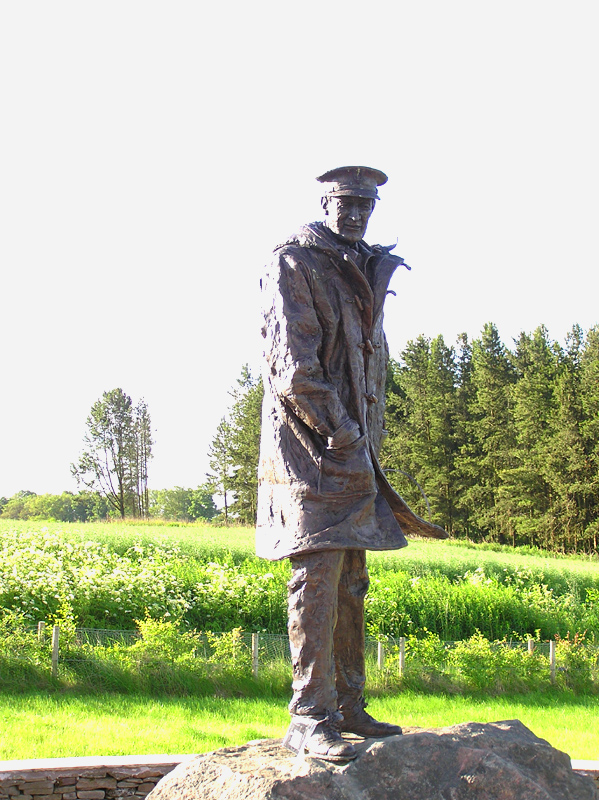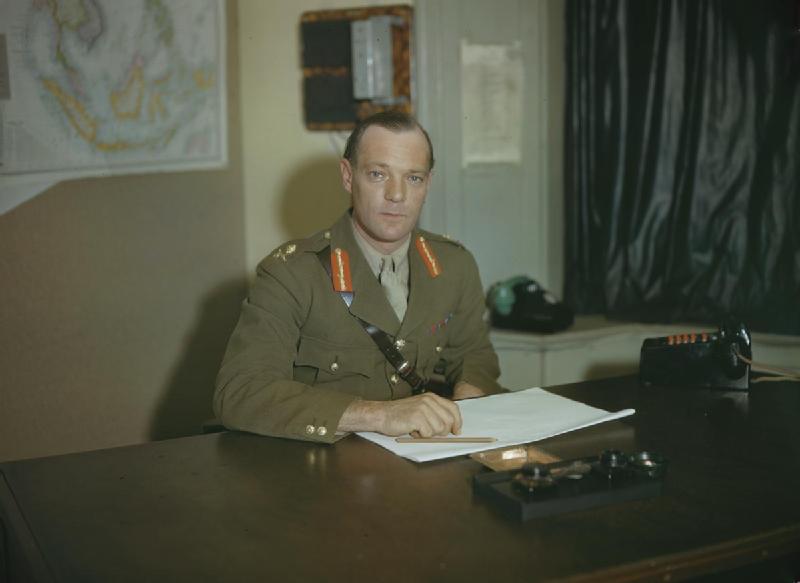|
Ernest Radcliffe Bond
Ernest Radcliffe Bond, OBE, QPM, (1 March 1919 – 20 November 2003), also called Commander X, was a British soldier, and later policeman famous for his service in the Metropolitan Police Service. Bond experienced the Fraud Squad, the Flying Squad, the Murder Squad, and became the first commander of the newly formed Bomb Squad (later the Anti-Terrorist Branch, now merged into Counter Terrorism Command). His notable achievements in the bomb squad were negotiating the rise of The Angry Brigade, eventually jailing several members. The other major event he negotiated as commander with the Bomb Squad was the Balcombe Street siege, in which two people were taken hostage by four Irish Republican Army members, who demanded a plane to Ireland. Bond, answering the demands, refused saying that the police "are not going to make any deals". The gunmen surrendered, the event a success for police with no casualties on either side. Early life Ernest Radcliffe Bond was born on 1 March ... [...More Info...] [...Related Items...] OR: [Wikipedia] [Google] [Baidu] |
The Angry Brigade
The Angry Brigade was a far-left British terrorist group responsible for a series of bomb attacks in England between 1970 and 1972. Using small bombs, they targeted banks, embassies, a BBC Outside Broadcast vehicle, and the homes of Conservative Members of Parliament (MPs). In total, police attributed 25 bombings to the Angry Brigade. The bombings mostly caused property damage; one person was slightly injured. Of the eight people who stood trial, known as the Stoke Newington Eight, four were acquitted. John Barker, along with Hilary Creek, Anna Mendelssohn and Jim Greenfield, were convicted on majority verdicts, and sentenced to ten years. In a 2014 interview, Barker described the trial as political, but acknowledged that "they framed a guilty man". History Origins In mid-1968 demonstrations took place in London, centred on the US embassy in Grosvenor Square, against US involvement in the Vietnam War. One of the organisers of these demonstrations, Tariq Ali, has said he re ... [...More Info...] [...Related Items...] OR: [Wikipedia] [Google] [Baidu] |
David Stirling
Sir Archibald David Stirling (15 November 1915 – 4 November 1990) was a Scottish officer in the British army, a mountaineer, and the founder and creator of the Special Air Service (SAS). He saw active service during the Second World War. Early life Stirling was born at his family's ancestral home, Keir House, in the parish of Lecropt, Perthshire on 15 November 1915. He was the son of Brigadier-General Archibald Stirling, of Keir, and Margaret Fraser, daughter of Simon Fraser, the Lord Lovat (a descendant of Charles II). Simon Fraser, 15th Lord Lovat was a first cousin. His paternal grandparents were Sir William Stirling-Maxwell, 9th Baronet and Lady Anna Maria Leslie-Melville. Stirling was educated at the Catholic boarding school Ampleforth College, but attended only a year at Trinity College, Cambridge before departing to Paris to become an artist. At with an athletic figure, Stirling was training to climb Mount Everest when the Second World War broke out. Second W ... [...More Info...] [...Related Items...] OR: [Wikipedia] [Google] [Baidu] |
Eighth Army (United Kingdom)
The Eighth Army was an Allied field army formation of the British Army during the Second World War, fighting in the North African and Italian campaigns. Units came from Australia, British India, Canada, Czechoslovakia, Free French Forces, Greece, New Zealand, Poland, Rhodesia, South Africa and the United Kingdom. Significant formations which passed through the Army included V Corps, X Corps, XIII Corps, XXX Corps, I Canadian Corps and the II Polish Corps. History North Africa The Eighth Army first went into action as an Army as part of Operation Crusader, the Allied operation to relieve the besieged city of Tobruk, on 17 November 1941, when it crossed the Egyptian frontier into Libya to attack Erwin Rommel's Panzer Army Africa. On 26 November the Commander-in-Chief Middle East Command, General Claude Auchinleck, replaced Cunningham with Major-General Neil Ritchie, following disagreements between Auchinleck and Cunningham. Despite achieving a number of tactical su ... [...More Info...] [...Related Items...] OR: [Wikipedia] [Google] [Baidu] |
Robert Laycock
Major-General Sir Robert Edward Laycock, (18 April 1907 – 10 March 1968) was a senior British Army officer best known for his influential role in the establishment and command of British Commandos during the Second World War. Early life Laycock was born in Westminster on 18 April 1907, the eldest son of Brigadier General Sir Joseph Frederick Laycock (died 1952)—an officer of the Royal Regiment of Artillery knighted for his services during the First World War—by his marriage on 14 November 1902 to Katherine Mary (Kitty) Hare (1872–1959), who was previously married to and divorced by the 6th Marquess of Downshire (died 1918),Anand, Sushila (2008), ''Daisy: The Life and Loves of the Countess of Warwick,'' Piatkus. and herself a granddaughter of William Hare, 2nd Earl of Listowel. Laycock was thus a half-brother of the 7th Marquess of Downshire; their sister Josephine (died 1958) married Edward Greenall, 2nd Lord Daresbury, and is grandmother of the present Baron. Thr ... [...More Info...] [...Related Items...] OR: [Wikipedia] [Google] [Baidu] |
Palestine (region)
Palestine ( el, Παλαιστίνη, ; la, Palaestina; ar, فلسطين, , , ; he, פלשתינה, ) is a geographic region in Western Asia. It is usually considered to include Israel and the State of Palestine (i.e. West Bank and Gaza Strip), though some definitions also include part of northwestern Jordan. The first written records to attest the name of the region were those of the Twentieth dynasty of Egypt, which used the term "Peleset" in reference to the neighboring people or land. In the 8th century, Assyrian inscriptions refer to the region of "Palashtu" or "Pilistu". In the Hellenistic period, these names were carried over into Greek, appearing in the Histories of Herodotus in the more recognizable form of "Palaistine". The Roman Empire initially used other terms for the region, such as Judaea, but renamed the region Syria Palaestina after the Bar Kokhba revolt. During the Byzantine period, the region was split into the provinces of Palaestina Prima, Palaestin ... [...More Info...] [...Related Items...] OR: [Wikipedia] [Google] [Baidu] |
Engagement (military)
A military engagement is a combat between two forces, neither larger than a division nor smaller than a company, in which each has an assignor perceived mission. An engagement begins when the attacking force initiates combat in pursuit of its mission, and ends when the attacker has accomplished the mission, or ceases to try to accomplish the mission, or when one or both sides receive sufficient reinforcements, thus initiating a new engagement. As a tactical mission, the engagement is often a part of a battle. An engagement normally lasts one to two days; it may be as brief as a few hours and is rarely longer than five days. It is at this scale of combat that tactical engagement ranges of weapons and support systems become important to the troops and their commanders.pp.65-66, Dupuy See also *Military campaign References Sources * Dupuy, T.N. (Col. ret.), ''Understanding war: History and Theory of combat'', Leo Cooper, London, 1992 * Simpkin, Richard, ''Race to the Swift: Thou ... [...More Info...] [...Related Items...] OR: [Wikipedia] [Google] [Baidu] |
British Army
The British Army is the principal land warfare force of the United Kingdom, a part of the British Armed Forces along with the Royal Navy and the Royal Air Force. , the British Army comprises 79,380 regular full-time personnel, 4,090 Gurkhas, and 28,330 volunteer reserve personnel. The modern British Army traces back to 1707, with antecedents in the English Army and Scots Army that were created during the Restoration in 1660. The term ''British Army'' was adopted in 1707 after the Acts of Union between England and Scotland. Members of the British Army swear allegiance to the monarch as their commander-in-chief, but the Bill of Rights of 1689 and Claim of Right Act 1689 require parliamentary consent for the Crown to maintain a peacetime standing army. Therefore, Parliament approves the army by passing an Armed Forces Act at least once every five years. The army is administered by the Ministry of Defence and commanded by the Chief of the General Staff. The Brit ... [...More Info...] [...Related Items...] OR: [Wikipedia] [Google] [Baidu] |
French Polish
French polishing is a wood finishing technique that results in a very high gloss surface, with a deep colour and chatoyancy. French polishing consists of applying many thin coats of shellac dissolved in denatured alcohol using a rubbing pad lubricated with one of a variety of oils. The rubbing pad is made of absorbent cotton or wool cloth wadding inside of a piece of fabric (usually soft cotton cloth) and is commonly referred to as a ''fad'', also called a rubber, tampon, or (Spanish for "rag doll"). ''French polish'' is a process, not a material. The main material is shellac, although there are several other shellac-based finishes, not all of which class as French polishing. The French Polish technique is an excellent method to accent exotic wood grain. The finish is softer than modern varnishes and lacquers, and is particularly sensitive to spills of water or alcohol, which may produce white cloudy marks, as does heat damage. On the other hand, French Polish is simpler to re ... [...More Info...] [...Related Items...] OR: [Wikipedia] [Google] [Baidu] |



